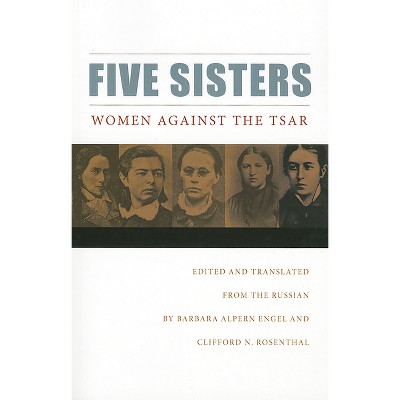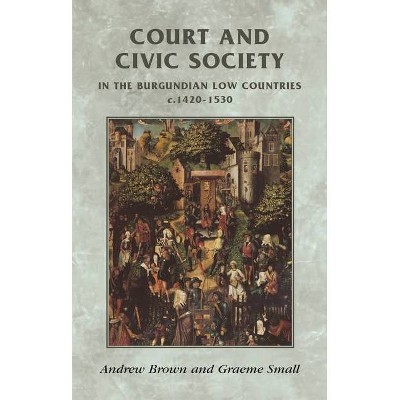Sponsored

Louis XIV and the Parlements - by John J Hurt (Paperback)
In Stock
Sponsored
About this item
Highlights
- This is the first scholarly study of the political and economic relationship between Louis XIV and the parlements of France, the Parlement of Paris and all the provincial tribunals.
- About the Author: John J. Hurt is Associate Professor of History at the University of Delaware
- 240 Pages
- History, Europe
Description
About the Book
The first scholarly study of the political and economic relationship between Louis XIV and the parlements of France, the Parlement of Paris and all the provincial tribunals, calling into question current revisionist understanding of Louis XIV.Book Synopsis
This is the first scholarly study of the political and economic relationship between Louis XIV and the parlements of France, the Parlement of Paris and all the provincial tribunals. The author explains how the king managed to impose strict political discipline for which this reign, and only this reign, is known. Hurt shows that the king built upon that discipline to extract large sums of money from the judges in the parlements, thus damaging their economic interests. When the king died in 1715, the regent, Philippe d'Orléans, after a brief attempt to befriend the parlements through compromise, resorted to the authoritarian methods of Louis XIV and perpetuated the Sun King's political and economic legacy.
This study calls into question current revisionist understanding of Louis XIV and insists that absolute government had a harsh reality at its core. Based upon extensive archival research, this remarkable book will be of interest to all students of the history of early modern France and the monarchies of Europe. An electronic edition of this book is freely available under a Creative Commons (CC BY-NC-ND) licence.From the Back Cover
This is the first scholarly study of the political and economic relationship between Louis XIV and the parlements of France, the Parlement of Paris and all the provincial tribunals. The author explains how the king managed to impose strict political discipline for which this reign, and only this reign, is known. Hurt shows that the king built upon that discipline to extract large sums of money from the judges in the parlements, thus damaging their economic interests. When the king died in 1715, the regent, Philippe d'Orléans, after a brief attempt to befriend the parlements through compromise, resorted to the authoritarian methods of Louis XIV and perpetuated the Sun King's political and economic legacy.
This study calls into question current revisionist understanding of Louis XIV and insists that absolute government had a harsh reality at its core. Based upon extensive archival research, this remarkable book will be of interest to all students of the history of early modern France and the monarchies of Europe.Review Quotes
"John Hurt's remarkable book combines detailed narrative with a wide-ranging argument. It will stand as a definitive summary of both government policies and their effects on the judges. This is a model historical study, altogether compelling."--"H-France Book Reviews"
"Hurt's argument is presented in a lively style and is backed by impressive scholarship. By highlighting the harsh treatment of the Parlements in such an effective way, Hurt has performed a real service; his work will reopen debate and give scholars of seventeenth-and eighteenth-century France cause for reflection. His book should also be compulsory reading for undergraduates as they attempt to decide whether absolutism was a historical myth or a painful reality."--"French History"
About the Author
John J. Hurt is Associate Professor of History at the University of Delaware
Shipping details
Return details
Frequently bought together
Trending Non-Fiction

















